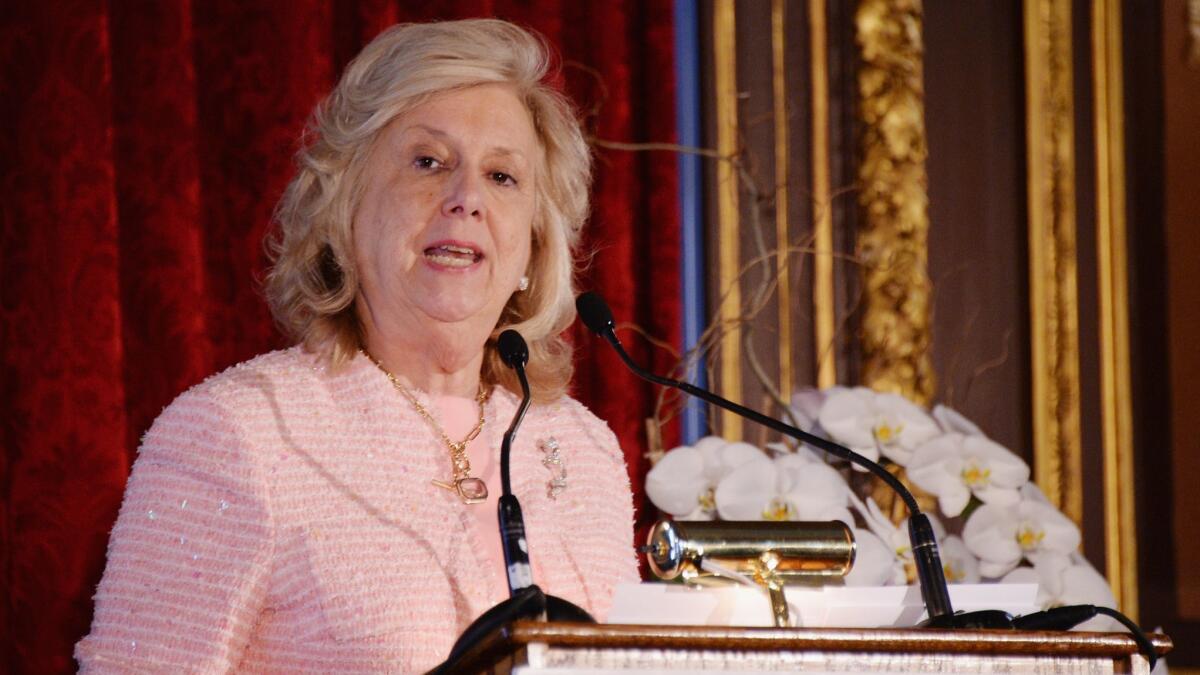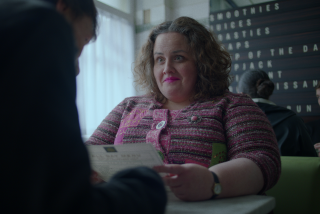She was the villain in ‘When They See Us.’ Now she’s suing Ava DuVernay and Netflix

- Share via
Linda Fairstein, whose office oversaw the prosecution of the 1989 Central Park Five assault case, on Wednesday sued Netflix and director Ava DuVernay over her portrayal in the acclaimed miniseries “When They See Us.”
Fairstein was the head of the Manhattan District Attorney’s sex crimes unit during the case in which five young black and brown men were convicted of the rape and beating of a New York jogger. The convictions were vacated in 2002, and the five received a $41 million settlement from the city more than a decade later.
The Emmy-winning “When They See Us,” directed by DuVernay, was released on Netflix in May.
The former prosecutor’s lawsuit accuses Netflix and DuVernay of multiple counts of defamation, saying Fairstein was wrongly depicted as a racist and unethical villain.
The 119-page complaint was filed in U.S. district court in Florida, where Fairstein is a resident, according to the document. The suit also named “When They See Us” co-writer and producer Attica Locke as a defendant.
“‘When They See Us’ portrays Ms. Fairstein in a false and defamatory manner in nearly every scene in the three episodes in which she appears,” the complaint said. “In the film series, which defendants have marketed and promoted as a true story, defendants depict Ms. Fairstein — using her true name — as a racist, unethical villain who is determined to jail innocent children of color at any cost.”
The lawsuit is seeking unspecified damages, including punitive damages, as well as injunctive relief against further alleged defamation by DuVernay and the other defendants.
Los Gatos-based Netflix, in a statement, blasted the lawsuit as “frivolous” and vowed to defend against it.
“Linda Fairstein’s frivolous lawsuit is without merit,” the company said. “We intend to vigorously defend ‘When They See Us’ and Ava DuVernay and Attica Locke, the incredible team behind the series.”
This is not the first time Fairstein has attacked the series, in which she was played by Felicity Huffman.
Last year, the prosecutor-turned-crime novelist defended her office’s prosecution of the five young men in an op-ed for the Wall Street Journal. In the piece, she disputed the notion that the five were “innocent of all charges brought against them.”
Four of the five men confessed to the crime, but later retracted their confessions, saying they were coerced. All five were found guilty, but their convictions were vacated after an imprisoned rapist and murderer confessed to the crime.
After the series debuted, Fairstein was dropped by her publishers in the U.S. and Britain, as well as her literary and film agency, ICM Partners. The moves followed public calls to boycott her books over her role in the case. Fairstein’s complaint says she’d also lost business from canceled speaking engagements and legal consulting jobs because of the fallout from the series.
Her attorney, New York-based Andrew Miltenberg of Nesenoff & Miltenberg LLP, said the intent of the suit was not to “re-litigate the guilt or innocence” of the exonerated men — Korey Wise, Raymond Santana, Kevin Richardson, Yusef Salaam and Antron McCray.
Fairstein’s career, he said, has been “irreparably damaged” by “When They See Us,” which won two Emmys, including actor in a limited series for Jharrel Jerome, who played Wise.
“Most glaringly, the film series falsely portrays Ms. Fairstein as in charge of the investigation and prosecution of the case against The Five, including the development of the prosecution’s theory of the case,” Miltenberg said in an emailed statement. “In truth, and as detailed in the lawsuit, Ms. Fairstein was responsible for neither aspect of the case.”
More to Read
Inside the business of entertainment
The Wide Shot brings you news, analysis and insights on everything from streaming wars to production — and what it all means for the future.
You may occasionally receive promotional content from the Los Angeles Times.











